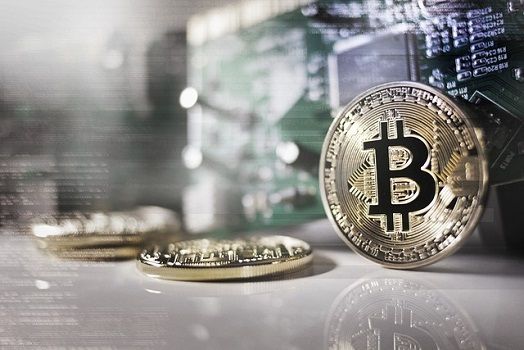LATAM’s cryptocurrency landscape continues to grow.
This week’s highlights come from Mexico, where Sumub (a digital assets security platform) published a report detailing the cases of digital asset fraud and how they affect users.
Sumsub’s “2024 Identity Fraud Report” reported a 1.6% rate of bitcoin fraud in Mexico.
This digital asset security platform offers a thorough breakdown of data on identity fraud trends and prevention, emphasizing the growing complexity of fraud schemes as they become more common in the market.
According to Cointelegraph, the survey highlights a worrying reality for users, as the number of bitcoin investors grows.
In an interview with local media outlet Milenio, Sumsub’s expansion director, Daniel Mazzuccheli, stated that there are already over 3 million digital asset users in Mexico, a figure that is rapidly growing.
With this expansion comes increased risk, as criminal organizations become more adept in their tactics.
Mazzuccheli added, “As the number of users grows, so does the sophistication of scammers”.
With technological advancements, new opportunities to commit fraud are emerging, notably in Mexico, where more than 3 million people possess cryptocurrencies.
According to the research, identity fraud is the most common type of fraud worldwide, with an increase of 137%.
Sumsub stated that current technology has simplified the execution of fraudulent actions by reducing the requirement for specialized knowledge or technical expertise.
This progress has made fraud cheaper to carry out, and numerous “fraud-as-a-service” companies give tools and methods to inexperienced scammers, making fraudulent acts more accessible and ubiquitous than ever before.
Argentina’s lithium tokenization initiative
In Argentina, mining company Atómico 3 S.A. has embarked on an ambitious venture to tokenize reserves of lithium located within the Salares de Mogna.
According to a statement released by founder Pablo Rutigliano, the tokenization process will provide greater transparency into mining operations within the province of San Juan.
For decades, San Juan has played a prominent role in metal extraction throughout the country, and the push into lithium mining serves to further diversify its natural resources portfolio.
Through the innovative application of blockchain technology, Rutigliano hopes tokenized assets will grant unprecedented oversight into Argentina’s lithium industry from extraction to distribution.
With improved visibility on a global scale, Argentinian lithium producers aim to strengthen their position as suppliers to the new green economy.
Atómico 3 has moved fast in establishing its domination in the region, signing preliminary agreements to govern more than 50,000 hectares over the next half-decade.
The opening stage will scrutinize a sizable slice of 10,000 hectares while ongoing geological analysis remains relentless.
Situated around 100 kilometres from the provincial capital in the arid Angaco Department, the remote Salar de Mogna’s parched climate and meagre yearly rainfall make it a prime location for lithium extraction, giving Argentina a strategic stronghold.
With its tokenization, lithium has the chance to reinvent how the nation leverages its natural assets, catapulting it to the forefront of the industry and powering progress towards a sustainable future reliant on clean energy.
Bolivia’s YPFB adopts cryptocurrency for energy imports
Bolivia is facing a serious economic issue as the country has a severe lack of dollars and gasoline, forcing the state energy agency YPFB to use cryptocurrencies for energy imports.
According to Reuters, a YPFB official acknowledged that the decision comes as Bolivia’s foreign currency reserves plummet due to years of low natural gas exports.
The country is dealing with a rising gasoline issue, as evidenced by regular long lineups at petrol stations and growing public discontent expressed through rallies.
The country that was previously known for its abundance of natural gas has since experienced a downward spiral.
As domestic output has decreased, the country has transitioned from being a net energy exporter to a net energy importer.
The decrease is due to a lack of geopolitical sources of supply, underspending on exploration, and a lack of large new gas finds.
Depleting reserves have raised alarms about a long-term energy shortage, which could fuel more civil unrest amid growing hardship from scarce fuel supplies and an even more difficult economic backdrop.
With these current challenges, the government has approved digital asset consumption as a means of a broader energy import stabilization mechanism.
YPFB, Bolivia’s state-run energy provider, plans to use cryptocurrencies to supplement the country’s declining dollar reserves.
YPFB’s spokesperson added that: “From now on, these (cryptocurrency) transactions will be carried out,” stressing they need to find alternative financing methods because there is a shortage of hard currency.
The post LATAM crypto: fraud risks rise in Mexico while Argentina bets on lithium tokens appeared first on Invezz


